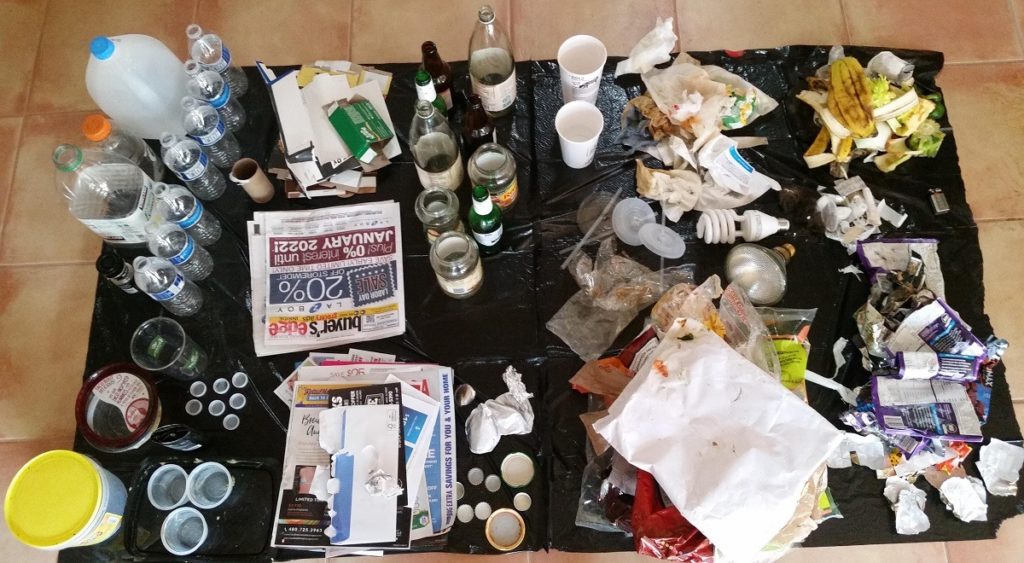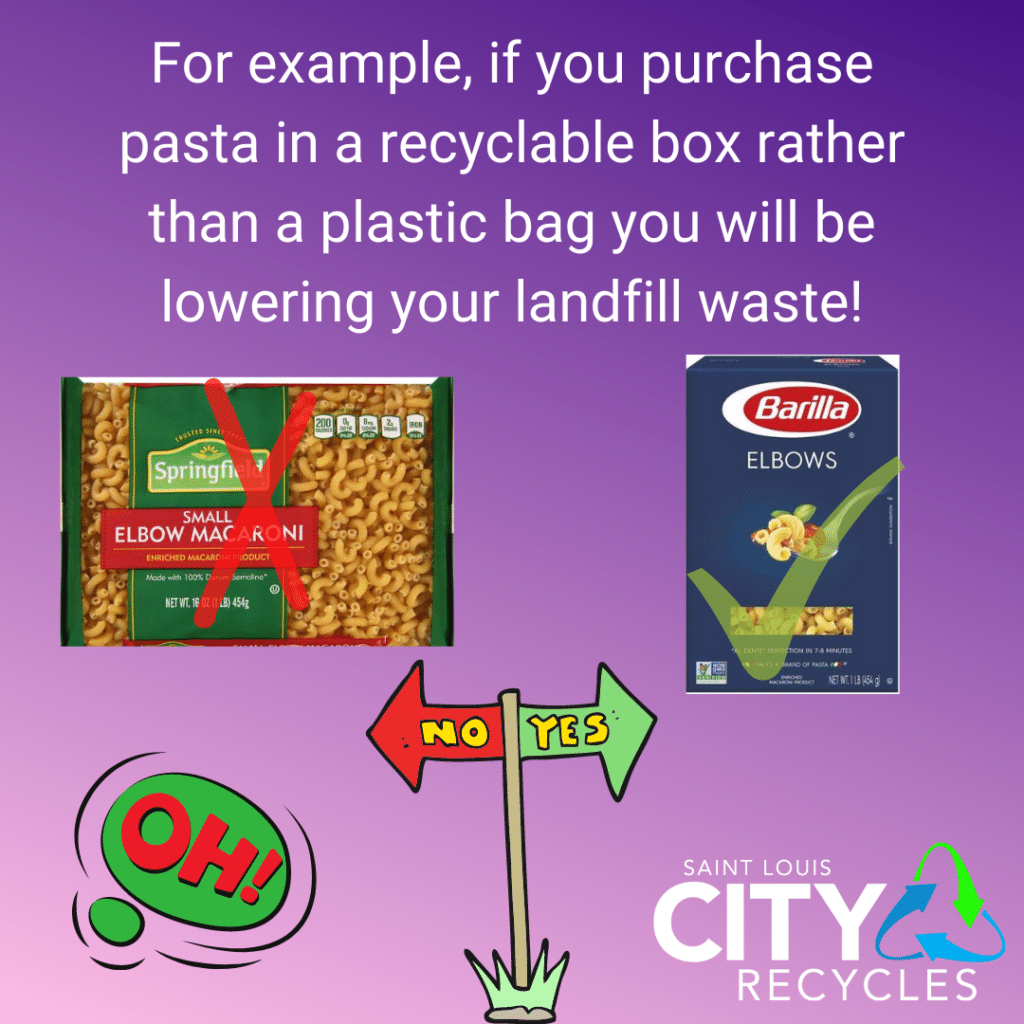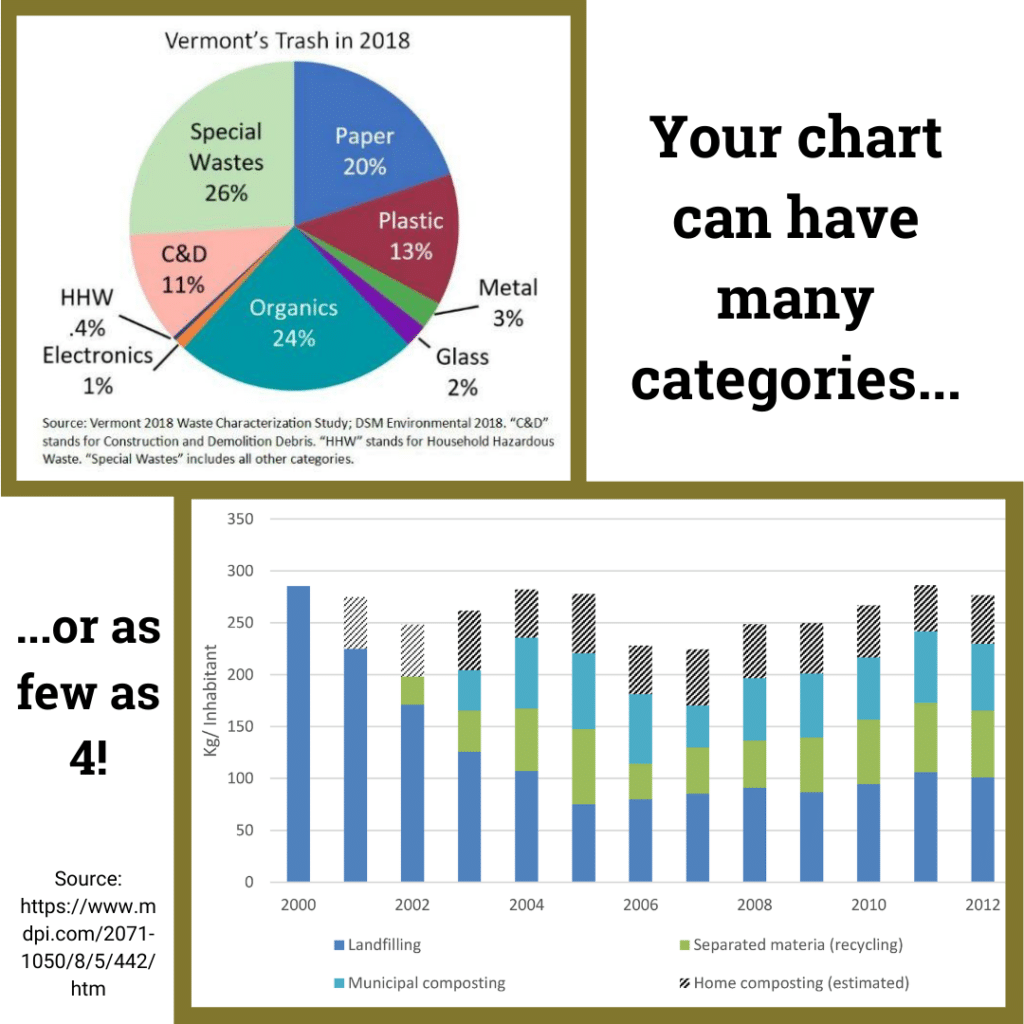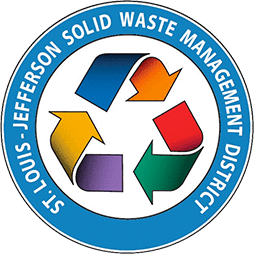While we’re all working, learning and staying at home more often, we have probably noticed an increase in trash and recycling at home. Take some time to learn why it’s important to lower your household waste by completing your own in-home waste audit.
Why is a Waste Audit Important?
If you’re wondering why you should conduct a waste audit, the main reason is simply to lower the amount of waste we send to the landfill. It will also allow us to set up a future plan in order to reduce your overall waste from the beginning. The average person generates about 4.4 pounds of waste per day, according to the EPA. For a household of four, that’s over 120 pounds of waste per WEEK! Usually, a lot of this trash was generated at work or school but now that we’re home more often, it is adding up in our homes!

Americans produce over 200 MILLION TONS of waste yearly! A majority of that waste could be avoided, recycled, reused, upcycled or composted. If an item is at the end of its life cycle, it can no longer be recycled or composted and should be sent to the landfill. Sending items that could be recycled or composted to the landfill takes up space, generates greenhouse gases and wastes reusable resources. While landfills do serve a purpose, there are also many reasons to keep items out of the landfill. Learn about “The Effects of Landfills on the Environment.”
Where to Get Started
While you might want to literally dive in and see what waste you’re sending to the landfill or recycling facility, it’s important to get organized before you start. You will begin your in-home waste audit at the time you would normally empty your trash and recycling. Whether this is once a week or every other week, it’s important to be consistent for the duration of your entire audit period. If you’re looking for some solid data and numbers to work from, bring out the bathroom scale and weigh your trash and recycling at the beginning of your audit weekly. By recording this weight, you can measure how much waste you have reduced over time.

Lay down a cover to keep your floor clean before you place your items from your trash and recycling on top. You can use newspaper, a tarp or plastic trash bags. It’s best that you conduct your audit inside so items don’t get carried away by wind and become accidental litter.
Grab Your Paper and Let’s Get Recording!
It’s up to you how detailed you want to get with your in-home waste audit. You can have anywhere from four to 16 categories!
The easiest 4 categories to start with are:
1. Items that can be recycled in our Blue Bins
2. Items that can be recycled Beyond the Blue Bin
3. Items that can be composted and/or food waste
4. Items that must be landfilled
We’ve done some of the hard work for you, if you want to download and use our “Household Waste Audit Worksheet” that we’ve created.

Sort your items based off the number of categories you choose to audit, you can get as detailed as you would like. Once you have your items displayed, you will record them into the categories you designated. Making bar graphs or pie charts after each audit can help you visualize your improvement in different areas over time.
You’ve got your items sorted and categorized, but now what? The best way to analyze your results is to make a chart or graph. If you’re tech-savvy, results could be put into a computer program or you can make your chart with paper, a ruler and markers. Kids can help and get creative with this step! By creating a chart, you will be able to visualize different areas of consumption.

Look at what your current waste consumption is and see how you can improve areas, then make adjustments to what is being recycled, composted or trashed. From there, you can repeat your waste audit consistently to see in what areas you are improving in.
Lower Your Waste Responsibly

Make sure you are always recycling responsibly and sticking with the 6! Don’t see it on the list? Don’t put it in the bin! If you want to check to see if an item is recyclable or not, please check our Beyond the Blue Bin Database.
You can learn ways to lower your waste before you even purchase it by reading our blog post “Take Recycling to the Next Level: Precycle!” We also have great information for those who ask “Why Compost” is an important aspect of waste reduction. It might help to incorporate ways of how you can “Go Beyond the 3 R’s” within your everyday life.









